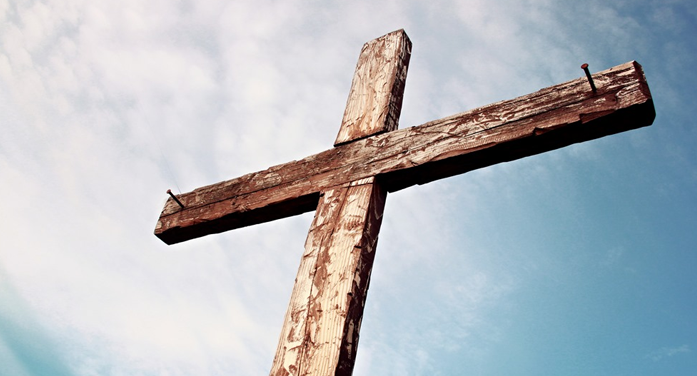Cross is central to our Lord’s earthly life. First, He refers to it under the figure of a temple and a serpent. He makes it more explicit when He promises to allow men to live by His Body and Blood.
At the feast of the Tabernacles two things happened (1) He tells the Jews that He is God. He affirms that the fullness of Divine Presence Truth and Soul Refreshment dwell in Himself. Apart from Him there is no moral, no belief, no slaking of thirst. He would never be a piece “extra” an addendum. He is who is (I am who I am). He, smashes every illusion of His auditors that He was preaching a morality apart from Himself, a doctrine distinct from His person. In other words, He Himself is the way the Truth and the Life. No one comes to the Father except through Him (Jn. 14:2). One can go to the Father only through Jesus. He is one with the Father (Jn. 10:30)
The father, sent Him to the world so that all may have life and have it more abundantly. He is the good Shepherd who lays down His life for the sheep. As the Father knows Him and as He knows the Father, He knows all those who belong to Him. Because He lays down His life, the Father loves Him (Jn. 10:10,11,17). He will give eternal life to all those who wholeheartedly listen to Him and believe in Him(10:28).
The second effect of His words is violence, resentment, and resolve to put Him to death. The hatred of the temple authorities made them twice try to arrest Him- at the feast of the Tabernacles and in the garden of Gethsemene. But in neither instance did the police have the power to seize Him, not even in the garden was the power given until after they had been made powerless. But they received the power only after the Lord’s declaration: “This is your hour”. Here He affirms categorically: “I am the light of the world”. Then He acknowledge that it is the “hour of darkness” as well. Sure, He could not be taken until He voluntarily surrendered Himself.
Jesus was ever conscious of His cross, while His enemies were not. But He would not go to the city until there was a command from His heavenly father.
The story of the Feast of the Tabernacles ends up with the words, “His Hour has not yet come.” A particular hour existed for everything He had to do; even His birth is described as the “fullness of time”. So His Cross had its appointed hour. Every orb that rolls through the immensity of space is bound to reach a certain point at its own hour. Man’s decrees and proposals often fail, but it is otherwise with the designs of the Almighty. The unity of His life was not in His scattered deeds and parables and utterances, but in Its consummation. Bethlehem was the foundation of Calvary and His glory. The stairs mount upward from the stable, for even then “there was no room” for Him; the “contradiction” prophesied by Simeon was another step; the Feast of the Tabernacles, another. He knew every step of the way, for He was not merely a man doing his best before God, but God doing His best for man, through the Love revealed in the sacrifice of Himself.



